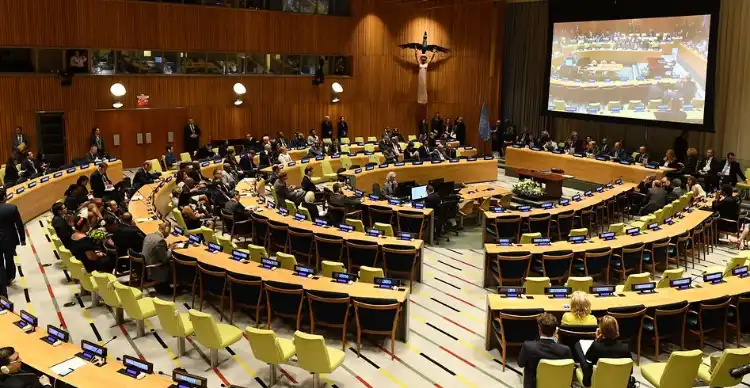Israeli Prime Minister Benjamin Netanyahu has reiterated that Israel will not hesitate to attack an Iranian nuclear facility if necessary. He has challenged the recent statement made by Rafael Mariano Grossi, Director-General of the International Atomic Energy Agency (IAEA), who said that any military attack on a nuclear facility is outlawed and against international norms. Netanyahu argued that Israel has the right to defend itself against any threat and prevent its destruction.
During a cabinet meeting on Sunday, Netanyahu said, “Nothing will prevent us from protecting our country and preventing oppressors from destroying the Jewish state.” He also criticized Grossi’s remark, calling it unworthy and emphasizing that Iran, which calls for Israel’s extermination, should not be allowed to protect its weapons of destruction.
Netanyahu’s stance came in response to a reporter’s question about US and Israeli threats to attack Iran if it does not agree to curb its nuclear program. Grossi, who was in Tehran to meet with Iranian leaders, said that any military attack on a nuclear facility is outlawed and against international norms.
Grossi’s trip to Tehran seems to have had some positive results as Iranian officials agreed to restore the UN watchdog’s access to some surveillance tools at the country’s nuclear facilities. The IAEA was also granted an increase in inspections at the Fordo nuclear site, as well as additional verification and monitoring activities.
Iran has consistently denied having any ambition to acquire nuclear weapons. In 2015, Iran signed a deal with the US and other world powers to impose restrictions on its nuclear industry, including uranium enrichment, to alleviate fears about its potential for warhead development. However, in 2018, then-US President Donald Trump pulled out of the agreement and imposed sanctions on Iran, citing its nuclear program.
Despite the UN’s ban on military attacks on nuclear facilities, Israel remains steadfast in its commitment to protect itself against any potential threat. As tensions between Israel and Iran continue to rise, the possibility of an attack on Iranian nuclear facilities remains a concern for the international community. It is crucial for all parties involved to engage in dialogue and work towards a peaceful resolution to avoid further escalation of the conflict.

Treaty on the prohibition of nuclear weapons
The United Nations has long recognized the potential catastrophic consequences of military attacks on nuclear facilities. In response, the UN has adopted a policy that prohibits such attacks, in order to safeguard against the proliferation of nuclear weapons and maintain global peace and security.
The policy is based on the understanding that nuclear facilities are highly sensitive and dangerous, and any attack on them could lead to devastating consequences. Not only would such an attack result in the loss of human lives and cause severe environmental damage, but it could also trigger a chain reaction that could lead to a global catastrophe.
The UN’s ban on military attacks on nuclear facilities is rooted in international law, which prohibits the use of force against other countries except in self-defense or with the authorization of the UN Security Council. Under this principle, countries must refrain from any action that could escalate tensions or lead to armed conflict.
The International Atomic Energy Agency (IAEA) is tasked with ensuring that countries comply with their international obligations regarding the peaceful use of nuclear energy. The IAEA conducts regular inspections of nuclear facilities to verify that they are being used for peaceful purposes only and not for the development of nuclear weapons.


